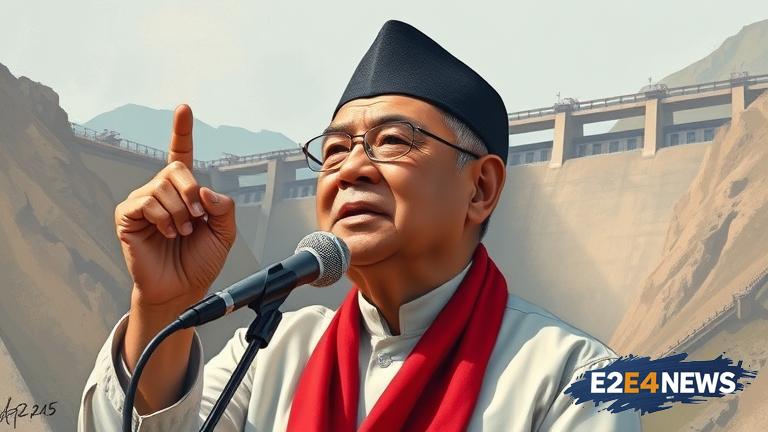Jhala Nath Khanal, a veteran communist leader in Nepal, has recently expressed his concerns and demands regarding two significant issues that have been at the forefront of Nepalese politics. Firstly, Khanal has called upon the government to provide a clear and transparent response regarding the extradition treaty with India. The treaty, which has been a topic of discussion for several years, aims to facilitate the exchange of criminals and fugitives between the two countries. However, many in Nepal have raised concerns that the treaty may be used to target political activists and dissidents. Khanal has emphasized the need for the government to address these concerns and provide assurances that the treaty will not be misused. Secondly, Khanal has also demanded that the government provide an update on the proposed Koshi High Dam project. The project, which is expected to be one of the largest hydroelectric dams in the region, has been plagued by delays and controversies. Many have raised concerns about the potential environmental and social impacts of the project, including the displacement of local communities and the destruction of natural habitats. Khanal has urged the government to conduct a thorough environmental impact assessment and to engage in meaningful consultations with local stakeholders before proceeding with the project. The communist leader’s demands have sparked a heated debate in Nepal, with many supporting his calls for transparency and accountability. Others, however, have criticized Khanal for being overly critical of the government and for failing to provide alternative solutions. The government has yet to respond to Khanal’s demands, but it is expected to do so in the coming days. The issue of the extradition treaty and the Koshi High Dam project has significant implications for Nepal’s relations with India and for the country’s overall development trajectory. As the government navigates these complex issues, it will be important for it to balance competing interests and priorities. The communist leader’s demands have also highlighted the need for greater transparency and accountability in Nepal’s governance structures. Many have called for the government to be more proactive in engaging with citizens and in addressing their concerns. The issue has also sparked a wider debate about the role of opposition parties in Nepal’s democracy. While some have praised Khanal for his courage in speaking out, others have criticized him for being too confrontational. The controversy surrounding the extradition treaty and the Koshi High Dam project is likely to continue in the coming days and weeks. As the government responds to Khanal’s demands, it will be important for it to prioritize the interests of the Nepalese people and to ensure that the country’s development is sustainable and equitable. The issue has also highlighted the need for greater regional cooperation and dialogue. Nepal and India have a long history of cooperation, but there are also many areas of tension and competition. The extradition treaty and the Koshi High Dam project have the potential to either strengthen or strain relations between the two countries. As the government navigates these complex issues, it will be important for it to prioritize diplomacy and cooperation. The communist leader’s demands have also sparked a debate about the role of civil society in Nepal’s democracy. Many have called for greater engagement and participation from citizens in the decision-making process. The issue has also highlighted the need for greater investment in Nepal’s infrastructure and energy sector. The Koshi High Dam project has the potential to provide significant economic benefits, but it also poses significant environmental and social risks. As the government moves forward with the project, it will be important for it to prioritize sustainability and equity. The controversy surrounding the extradition treaty and the Koshi High Dam project is a reminder of the complex challenges facing Nepal’s democracy. As the government responds to Khanal’s demands, it will be important for it to prioritize transparency, accountability, and the interests of the Nepalese people.
